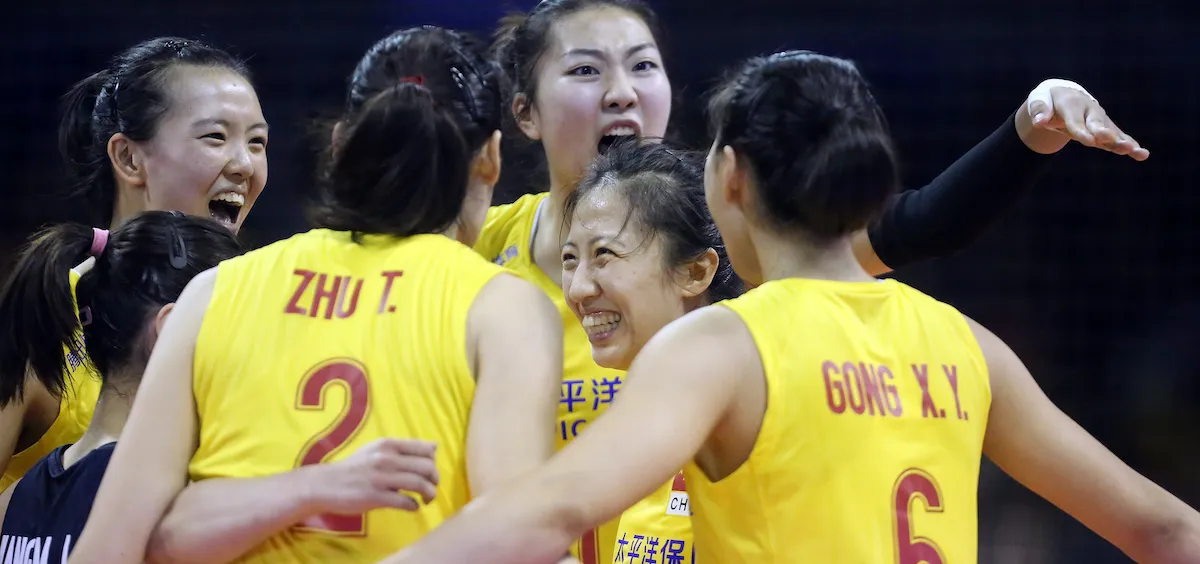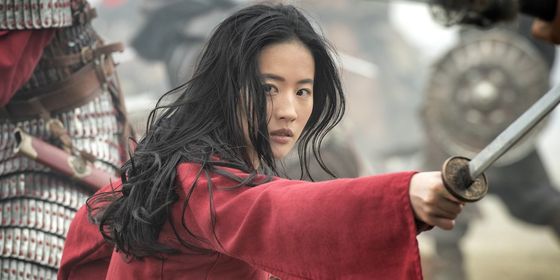Leap Up is a dull retelling of a compelling story
Four days after its release, Leap, a movie about China’s Women’s Volleyball team starring household name Gong Li, and directed by award winner Chan Ho-San, had only made 200 million RMB at the box office.
By comparison, last month’s war epic The Eight Hundred made nearly 1 billion RMB by the fourth day of its release, while Christopher Nolan’s Tenet earned 200 million RMB in mainland China in just two days.
As one disappointed viewer pointed out on Douban, “It is the Chinese Women’s volleyball team that is attractive, not the movie.”
Leap tells the story of China’s hugely successful and popular national female volleyball team, following the life of legendary player-turned-coach Lang Ping, played by Gong Li. All the elements for success on screens were there, but Leap has failed to get off the ground and has been spiked by critics for its dull plot.
Leap focuses on three historically pivotal moments for the volleyball team: Their first World Cup win in 1981, their failure at home during the 2008 Beijing Olympics (losing to the United States, which was then coached by Lang Ping), and snatching victory at the 2016 Olympics in Rio. The film is almost a biopic of Lang Ping, as she had been a key player in 1981, and the team’s coach in both 2008 and 2016.
Other important figures in Chinese women’s volleyball, like Chen Zhonghe (played by Huang Bo), who coached the team for the first decade of the 21st century, and Yuan Weiwen (Wu Gang), coach of the “first generation” of the team in the 1980s, are largely sidelined in favor of a narrative in which Lang seems to assume sole responsibility for the successes and failures of the team—the other coaches’ characters aren’t even named in the film.
“Chen Zhonghe’s identity and changes, from unwillingness [to coach] at the beginning to integration [as part of the team] in the end, lack explanation and transition,” critic Yang Shiyang wrote in the Southern People Weekly. Part of this is allegedly because the real-life Chen believed the plot of Leap was too sensationalist and refused to be part of the film, leading to filmmakers ot delete some scenes about him.
In response, Leap’s screenwriter, Zhang Ji, claimed that encapsulating all the characters and stories of the team in a 150-minute movie would be impossible: “No matter how exciting a single match is, its scope is too limited to encapsulate the entirety of Chinese Women’s Volleyball.”
The film also neglects early development of the sport in the Maoist era in favor of a narrative that depicts the volleyball team’s success as mirroring China’s post-1978 economic transformation. In one scene, coach Yuan Weimin describes the significance of sports to China in the 80s: “Athletes are the first group of people to have the opportunity to leave the country; there is such a strong desire and sense of mission to prove ourselves to the world.”
It is true that the women’s volleyball team has been a great source of pride to Chinese, as it is one of the few team sports in which China consistently excels. When the team won the world championships in 1981 (the first time China had won a world championship in a major team sport) there were large celebrations in the streets in some cities.
Since then, the “spirit of the women’s volleyball” (女排精神) has become a catchword for patriotism and perseverance. According to NetEase’s Data Blog, words commonly used in tandem with the “women’s volleyball” on Weibo and in the state-run People’s Daily are struggle, championship, study, and motherland.
Yet the special significance of the Chinese Women’s Volleyball team to Chinese people was a double-edged sword for Leap. On the one hand, the General Administration of Sport of China supported the project, and allowed current and former members of the national team to play themselves in the movie. In a cinema in Beijing, one 81-year-old audience member speaks to the emotional attachment Chinese have to the volleyball team: “I don’t understand the rules, but I’m a Chinese, so I can understand the girls’ power.”
When director Peter Chan Ho-San decided to shoot Leap, he hoped to synthesize and portray the significance of the volleyball team to the Chinese people. “I have made many different movies in my life. No matter what the subject or genre is, it is just a vessel; in the end I want to portray people and stories…I hope to find topics more relevant to the Chinese people.” Leap certainly tells a story close to Chinese people’s hearts; if only it didn’t have to sacrifice so much of the plot.












